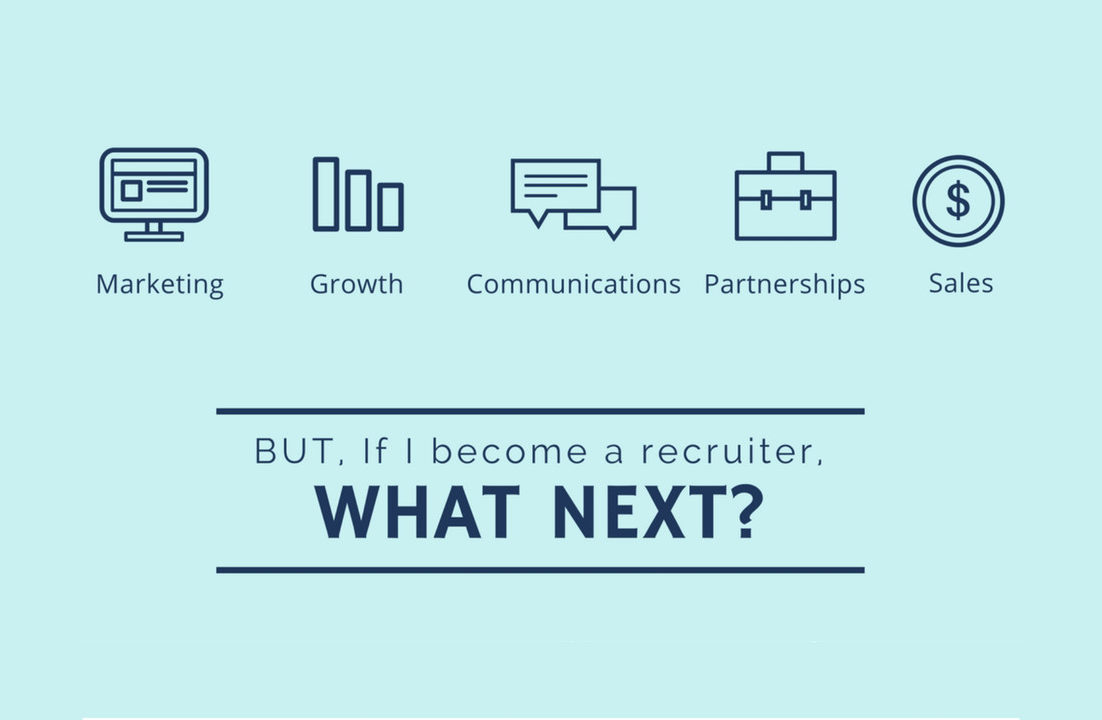In my current role, I talk with people every week who are considering a career path switch to the recruiting industry. The draws most often talked about are that you will have a lot of fun and can make a lot of money. True! However, savvier candidates I speak with really want to know how accepting a role in the recruiting industry will impact their personal development and future career options as well. After some reflection, here are a few of the most consistent non-monetary benefits of becoming an Executive Recruiter.
It’s Your Job to Constantly Meet (and learn from) The Best.

One of the most profound, yet unsung, benefits of the Executive Recruiter role is that you get to learn from the experiences of hundreds if not thousands of people you have the privilege of interviewing over the course of your career. How many people in the world are able to sit down in a private meeting with professionals who are at the top of their game, and have them recount the challenges they faced and the wins they drew out of those situations. In the process of helping them succeed in their search, if you listen carefully, you will learn more about business than many years of graduate study could teach.
You Learn To Communicate. Really Well.

Good Recruiters are “people people.” Whether it’s through email, an in-person interview / client visit, or the hours you spend talking on the phone you are constantly practicing and refining how you communicate with your internal partners, and external stakeholders. You will mess up. You will say the wrong thing. You will learn from these mistakes and over time many recruiters become excellent story-tellers, who have the flexibility to adapt their style to the audience they are speaking to. You will be able to share a succinct executive briefing with your C-level clients, and provide a more detailed/compassionate response to the candidates who are navigating the ups and downs of the interview process. Which flows nicely to the next perk…
You will learn how to influence and negotiate.

No matter what future role you take, in today’s collaborative workforce you will need to know how to market yourself, your ideas, and your products if you want to succeed. People in the recruiting industry are constantly improving on all three fronts—building credibility with candidates/clients, sharing the benefits of a particular opportunity to a candidate who wouldn’t otherwise be interested, and also helping to “sell” a candidate they believe in strongly to a sometimes reticent internal partner or hiring manager.
You get the inside scoop on a wide variety of corporate cultures and management styles.

“Dad, what’s inside that shiny building?” my son asks for the 10th time as we drive through the city. I used to wonder the same thing, and in recruiting it’s been fun to satisfy that curiosity. I’ve visited clients with dizzying views from the tops of those “shiny buildings” to the busyness of factory floors.
If you are early in your career, or you have worked for the same firm for a good number of years, you may wonder what is going on inside all of those other shiny buildings surrounding your office as well. As a professional in the search/staffing industry, it sometimes feels like you are speed-dating various corporate cultures as you visit your clients’ offices and try to absorb their style. Likewise, you get to hear the nitty-gritty benefits, drawbacks, risks and rewards of various management styles as you speak to candidates who are living, breathing products of those environments. Over time, the mystery is reduced but it is replaced with a more thorough understanding of yourself and what type of an organization you want to partner with as your career progresses.
You get to build your own business.

I really enjoy working with entrepreneurs. This business is full of them. People who have a specialty, maybe it’s finance, accounting, healthcare, life-sciences, administration, HR, construction, IT, it doesn’t matter–they have a deep knowledge of their field and a desire to work on their own terms. These are the people who are not content to simply work for hours by themselves and pull out a work-product. They want to work with people. They want to take intelligent risks. They don’t want to be locked into a salary. Recruiting offers these people the opportunity to synthesize all of those drives/desires into a (I’m biased here) very rewarding career, where they leverage their expertise and people skills to grow a business.
So, what’s next?

With your finely tuned communication skills, your sharply refined ability to influence and negotiate, the wisdom from hundreds of interviews, a thorough knowledge of the corporate culture and management style you prefer and (after a season or two in the business) an extensive professional network what couldn’t you do next? This career provides a lot more than financial rewards and fun if you keep an open mind, and open ears to learn as much as you can from everyone you meet.
My firm always has additional room for ambitious, entrepreneurial and intellectually curious people who are ready to build their career in recruiting–I wouldn’t be a good recruiter if I didn’t let you know that. Regardless of your background, if this article has you considering a career in the staffing/recruiting industry, and you would like to discuss, I have colleagues in all different specialties and would be happy to assist you in learning more.



